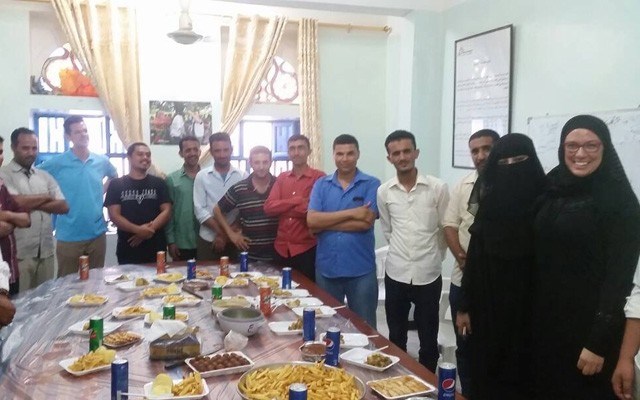Sitting on the patio of a Marketplace coffee shop, Juniper Gordon explained how it feels to be back in this tony, mountain paradise we call Whistler.
After spending six months in Yemen, a country in the midst of an intense humanitarian emergency, it can be hard to relate. "I can't expect everyone to understand what it's like to be in the middle of a combat zone," she said, between sips of her tea latte.
As a medical team leader with Doctors Without Borders/Médicins Sans Frontières (MSF), she managed the organization's medical program at Yemen's last remaining public hospital.
For the past two years, Yemen has been engulfed by a fierce civil war. Of the country's population of 28 million, 18.8 million are thought to be in need of humanitarian assistance, with 7 million on the verge of famine.
In addition, Yemen is facing a Cholera epidemic, which MSF is working to stamp out.
The World Health Organization estimates 200,000 people have contracted the infection, which can result in severe dehydration; 1,300 are thought to have died because of it.
The war and outbreak has taken a major toll on Yemen's medical system, with many medical staff not being properly paid by the government. For Gordon, the goal was to "build capacity at the national and local level, so that when MSF leaves, they can continue," she said.
MSF, she explained, works with nationals to develop protocols and ensure that hospitals and clinics are equipped to care for the sick and injured in times of great stress and crisis.
"We're not there to be there forever," she added, describing the organization's guiding philosophy. "When things are stable enough, we want to be able to hand (control) back over to ministries of health, so they can continue on."
In Yemen, Gordon had to adjust to a highly conservative Muslim culture. She wore a hijab and abiya, which covered her entire body, and navigated a culture that can be openly hostile to women in positions of authority. "Being a female in a leadership position can be difficult," said Gordon. "That was one of the big challenges."
At meetings, she was often the only female in a room full of men.
"It can be quite frustrating," she said. "Sometimes, I would say something, and I would be talked over or ignored. I had to learn how to not take it personally and to work with it."
Gordon's trip to Yemen was not her first experience with MSF. In the past, she's worked for the organization in Myanmar, South Sudan, and Jordan, where she worked with Syrian refugees.
A trained nurse, she moved to Whistler in 2005, though she now calls Pemberton home. After several years working in public health, she became a "northern nurse," which saw her deployed to remote First Nations communities for extended periods.
She received special training to be able to do certain procedures, like stitching up a wound that would normally fall outside of the scope of a regular nurse.
That experience, she said, was invaluable. "In northern nursing you're doing basically everything. Because you're the only one there, it's a lot of primary care," she said.
It also got her used to extended periods of time alone. "You learn how to deal with being away from friends and family," said Gordon. "With MSF you might be living in a compound, and you have to learn how to deal with the stresses of it."
According to Claudia Blume, a press officer with MSF, Gordon's poised disposition has served her well in the field. "She's a very calm person," said Bloom, a character trait that is valued in the field, where things can change without a moment's notice.
Witnessing the horrors of war can, of course, be deeply distressing, and during our conversation, Gordon recounted a story about how two kids died after they found an explosive device. They had tried to play with it, as though it was a discarded toy.
"It's important to know that it's normal to think about it," said Gordon.
"But if it's all you're thinking about, then that's a problem. You need to talk to someone.
"(But) there are some things you never forget."




